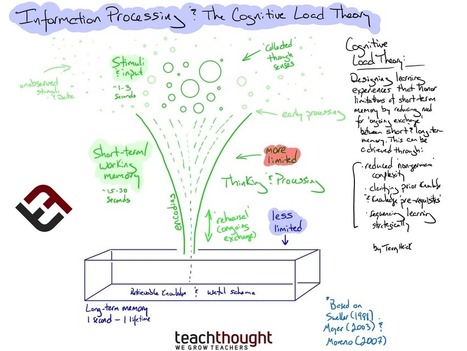Preface: I’m (very clearly) not a neurologist. While I often have dedicated a lot of thought and research into things I write, sometimes I write about things in order to understand them–or understand them better. This is one of those times. Caveat emptor.
Generally, the Cognitive Load Theory is a theory about learning built on the premise that since the brain can only do so many things at once, we should be intentional about what we ask it to do.
It was developed in 1998 by psychologist John Sweller, and the School of Education at New South Wales University released a paper in August of 2017 that delved into theory. The paper has a great overview–and even stronger list of citations–of the theory. They also, obviously, define and explain it:
‘Cognitive load theory is based on a number of widely accepted theories about how human brains process and store information (Gerjets, Scheiter & Cierniak 2009, p. 44). These assumptions include: that human memory can be divided into working memory and long-term memory; that information is stored in the long-term memory in the form of schemas; and that processing new information results in ‘cognitive load’ on working memory which can affect learning outcomes (Anderson 1977; Atkinson & Shiffrin 1968; Baddeley 1983).’
Via Edumorfosis



 Your new post is loading...
Your new post is loading...







